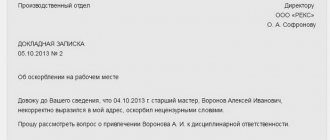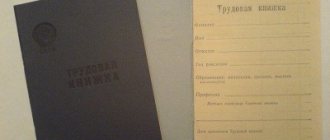When property is seized, the debtor shouts in panic, “What should I do?!” and rushes to the lawyers. He begs to be told how to get by with little blood and not allow the innocent cat Barsik to be arrested. Yes, yes, there are legends about the treachery of bailiffs. To force the debtor to pay, they resort to the most brutal methods.
If you already owe money and can’t pay it off, go to a lawyer in advance. He will explain in detail what can be property and how to protect those dear to your heart from arrest. It will also offer an option for debt restructuring and advise on how to pay it off faster.
Do you want to figure it out, but don’t have time to read the article? Lawyers will help
Entrust the task to professionals. Lawyers will complete the order at the cost you specify
174 lawyers on RTIGER.com can help with this issue
Solve the issue >
By the way, about Barsik, this is the absolute truth. The bailiffs described a cat as a luxury item for a malicious child support worker. And - lo and behold! Money for a child was suddenly found.
Foreclosure does not apply to all types of property
Article 466 of the Code of Civil Procedure of Russia contains a list of property owned by the debtor, against which foreclosure cannot be applied. That is, the bank, other creditors, as well as bailiffs or the court cannot take away (seize) the specified material benefits. (Civil Procedure Code of the Russian Federation Article 446. Property that cannot be foreclosed on under enforcement documents)
Attention! Need protection from bailiffs? in the form, go to the online lawyer consultation , go, today for free !
Property that is not subject to foreclosure:
- personal plots of land or part of the land on which a residential property is built. At the legislative level, it is possible to alienate real estate only with land, which is the basic basis;
- household items of the debtor. Jewelry or luxury items can be confiscated, but personal belongings associated with the debtor’s individual use cannot be confiscated;
- equipment or other items directly related to professional activities;
- livestock, plant seeds. Provided that the debtor needs them to provide for himself and his family, and not for sale;
- food and cash, the total amount of which is not less than the subsistence level.
Previously, the last item on the list was the debtor’s only home, for which the court could not foreclose on the debt if the bank or other creditor applied for it. Provided that the apartment was not mortgaged or secured.
In reality, legislative innovations open up additional powers for performers. Now the bailiff can seize the only home if the debtor has debts. In addition, practice shows that since the beginning of this year the court has been striving to actively apply legislative innovations. In this connection, the bank receives some guarantees to secure claims, and the debtor has reason to worry about the further disposal of the property. Since the arrest applied by the bailiff on real estate limits the borrower’s right to dispose of housing at his own discretion, he cannot carry out property transactions.
When property can be seized
An arrest can be made on the basis of a decision in criminal proceedings that has entered into force. Sometimes material assets or real estate are seized during the consideration of a claim, as a security measure at the request of the second party in the case. Most often, this measure is resorted to after a court decision in a civil lawsuit has entered into legal force.
Seizure of property is the last resort to encourage the debtor to pay the debt. Before resorting to it, the bailiff notifies that enforcement proceedings have been initiated against the debtor.
To voluntarily pay off the claim for property collection, 5 days are given. If it is not satisfied, a fine may be imposed. This is an enforcement fee, which is 7% of the total debt. Minimum amount: 1000 from an individual/individual and 10,000 from an organization.
If this amount is not paid, the fine increases - an individual or individual entrepreneur must pay 5,000, an organization - 50,000 rubles. And only when these sanctions remain unheeded do bailiffs take measures to search for material assets in property. In other words, property that can be seized to collect debt.
Bailiffs send requests to authorities that have information about the debtor’s possession of real estate and other material/monetary assets. These are Rosreestr, traffic police, etc.
As information is received about the presence of property suitable for seizure, a ban on registering transactions with it is sent to the relevant authorities. For example, to Rosreestr - for real estate, to the State Traffic Safety Inspectorate - for vehicles.
If the amount of debt is no more than 3,000 rubles, collection cannot be imposed (does not apply to money or collateral). However, if the defaulter has several debts and their total amount is more than 3,000 rubles, it is allowed to seize material assets.
It happens that the registration authorities do not have such information. Then the bailiff goes to the debtor’s registered address. There he checks for the presence of valuables that can be foreclosed on. If any are found, an inventory is made and a report is drawn up.
The inventory is drawn up in the presence of witnesses, things are immediately assessed - the bailiffs have an assessment methodology. If the preliminary cost is more than 30,000 rubles, the item is transferred to the appraiser. The form of the inventory act is approved by law.
Everyone present must sign the document. If desired, you are allowed to make adjustments or notify of disagreement.
The decision to impose a penalty and a copy of the inventory are transferred to the participants the next day, and are also sent to the registration authorities for control: the traffic police, Rosreestr and others. After the assessment, ten days are given to appeal it. After this period, the seized property is transferred for sale.
Seizure and foreclosure are not equivalent concepts
As practice shows, many uninformed citizens misinterpret legal terms, and as a result, incorrect interpretation of the law occurs. Meanwhile, the concepts of foreclosure to pay off debt and seizure of the property of a negligent borrower imply completely different consequences.
The term recourse must be understood specifically as the seizure of property, that is, a court or bailiff, on the basis of a decree, can take away the payer’s property so that it can be sold at auction and repay the resulting debt to the claimant. Under such circumstances, the debtor is deprived of his benefits.
And if the debtor’s property is seized, then it is not subject to seizure in the full sense of the word, and therefore it cannot be taken away. The court establishes certain restrictions related to the disposal of the seized apartment; if the borrower has several apartments, then he may be prohibited from living in this area. But as judicial practice shows, often the payer and his family continue to live in a single dwelling while retaining ownership rights. The housing simply goes into the status of restricted or seized. After the borrower has fully repaid the debt, he has the right to contact the arresting authority with a statement and ask to lift the restriction.
According to the legislator, the use of such strict collection measures will prevent transactions with the only real estate by an unscrupulous citizen behind the back of the executors and the creditor.
Attention! Need protection from bailiffs? in the form, go to the online lawyer help , go, today for free !
A brief summary of the conditions on the basis of which the only home can be seized:
- the debtor and family members continue to live in the apartment;
- The bailiff or the court may apply measures at their discretion to prevent the sale of other transactions related to housing. But often such a request is made by the bank (creditor), for reinsurance, since there is no direct opportunity to collect the property for debts, but there are suspicions about the integrity of the borrower;
- in order to prevent registration and occupancy of other residents.
Under such circumstances, it is not possible for debtors to avoid repaying the debt.
What should the debtor do?
Within five days after the inventory, the debtor may try to remove some of the seized items from the encumbrance. To do this, he files a statement of claim with documentary justification for the conclusion.
The debtor can simply wait for the repossessed items to be sold and the debt to be closed or reduced. After the inventory, the former owner of the assets can begin selling them himself. He needs to come to an appointment with the bailiff and write an application for independent sale of the seized items. This must be done no later than ten days after the inventory.
When permission is received, the debtor must transfer the required amount to the account of the executive body. When transferring money, you must indicate that it is being transferred for the sale of seized items.
A person who has no debts and no enforcement proceedings must be designated as the payer. After the funds are credited, this person will be considered the owner of the sold items; these items cannot be described again.
Can bailiffs take away housing and evict
For debtors, the issue of eviction from their only apartment due to debt to a creditor is relevant.
Based on legal practice, resorting to such a harsh penalty is necessary in exceptional cases:
- the amount of debt on loan obligations has reached large proportions, exceeding the cost of the housing itself;
- if the borrower’s personality is regarded as a willful defaulter.
Grounds not allowing eviction:
- the only housing. This means not only the property owned, but also the fact that the borrower and his family have absolutely no place to live;
- minor children living with the debtor in the only home.
Eviction in fact differs from the procedure for seizure. The eviction procedure provides for a specific goal - the sale of property at auction in order to pay off the debt or transfer it to the creditor.
Is it possible to sell or donate housing before bankruptcy?
When the possibility of losing property due to debt looms on the horizon, and the debtor has several properties, the thought involuntarily arises of selling them. Would it be right to do this?
Of course, you can sell everything except your only apartment and hide the money under your pillow. However, the court will most likely recognize all such transactions as illegal, cancel them and return them to your property first. And then the bailiffs step in and sell this property to pay off the debt. In this case, all problems with returning funds to the buyer will fall on your shoulders.
Similarly, transactions for donating real estate to close relatives (wife, husband, children) will be recognized as illegal. If this transaction occurred after you learned about the debt , it will be cancelled.
A mortgage agreement has been issued for the only residence
If the only residential premises are mortgaged under a mortgage agreement, then the application procedure for restriction and foreclosure is carried out taking into account the provisions of the Law “On Mortgage”. The provisions of this act establish that mortgagees can foreclose on a mortgaged apartment in order to ensure the requirements specified in the agreement and not fulfilled by the debtor (Article 50). In this case, the intended purpose of the loan is not taken into account. In this situation, to prevent the creditor from taking the apartment, the debtor must go to court and ask for debt restructuring. In addition, if a seizure is imposed, it will be difficult to remove it under such circumstances, up to the full repayment of the entire amount of debts.
Let's sum it up
The only housing, as a rule, cannot be the subject of foreclosure: it is not sold at auction to satisfy the needs of the creditor, since this would violate the citizen’s constitutional right to housing. However, if such housing is the subject of a pledge, or the court considers that its area exceeds the minimum required for living, then in such cases the sale is allowed. In other cases, real estate is used as part of enforcement proceedings in accordance with the general procedure.
Read: Can a creditor challenge a sale of property by a debtor?
How is a single home seized?
The arrest is imposed by the court at the stage of consideration of the case and at the request of the plaintiff in order to secure the claim, and the execution of the decision is dealt with by the executor.
Stages of the procedure for arresting the only residence:
- Notification of the borrower about the arrest and visit of the executors at the place of residence.
- The bailiffs draw up an act with an inventory of the property, displaying the following information:
- listing of persons who are present at the time of arrest;
- information and technical characteristics of the home, data on title documentation;
- the time period during which the arrest is in force;
- indication of restrictions;
- if the apartment is repossessed, the executor writes information about the receiving person;
- date of implementation of the measure, personal signatures of all participants. Including witnesses.
The civil servant gives the borrower and the lender a copy of the drawn up act, and also sends it to the court.
In order to quickly lift the arrest from the only home and dispose of it fully, the debtor faces the main task - to quickly pay off the debts.
Author of the article
Dmitry Leonov
Work experience 15 years, specialization - housing, family, inheritance, land, criminal cases.
Author's rating
721
Articles written
712
about the author
Useful information on bailiffs
- How long after the trial do the bailiffs arrive?
- Can bailiffs withdraw money from a Sberbank bank card?
- How much can bailiffs deduct from salaries?
- Can bailiffs withdraw money from a salary card?
- Seizure of a car by bailiffs, is it possible to drive?
- If the bailiffs are inactive, a complaint against the bailiffs
- Who can you complain to about bailiffs?
- Submission of a writ of execution to the bailiff service
- Can bailiffs describe parents' property for children's debts?
- Actions of bailiffs on a writ of execution
- Sample complaint to the prosecutor's office against the bailiff
- Can bailiffs seize a credit account?
- Inquiry about the progress of enforcement proceedings
- The paid traffic fine was handed over to the bailiffs
- Do bailiffs have the right to withdraw money from pensions?
- Do bailiffs have the right to open an apartment without the owner?
- How to negotiate with bailiffs to pay the debt in installments
- The bailiffs do not comply with the court decision, what should I do?
- Can bailiffs seize a salary card?
- Terms of enforcement proceedings with bailiffs
- Does a bailiff have the right to seize a pension?
- Can bailiffs seize child benefits?
- Can bailiffs seize the only home?
- Can bailiffs seize a car?
- Can bailiffs seize a Sberbank card?
- Car arrest
- Can bailiffs describe property without a court order?
- How do bailiffs find out the debtor’s place of work?
- What property can bailiffs describe?
- How to remove a lien from an apartment
- Seizure of property not belonging to the debtor
- If the debtor does not pay according to the writ of execution
- Information about arrests of bailiffs
- How to revoke a writ of execution from bailiffs
- How not to pay bailiffs according to a court decision
- How to find out fines from bailiffs
- Can a bailiff withdraw money from an account without notice?
- How to submit a writ of execution to bailiffs
- What accounts cannot be seized by bailiffs?
- Search for debtors by bailiffs
- How to remove a car from being seized by bailiffs
- What to do if you receive a letter from the bailiffs
- Find out the debt from the bailiffs of the Altai Territory
- Amur region
- Arkhangelsk region
- Astrakhan region
- Belgorod region
- Bryansk region
- Vladimir region
- Volgograd region
- Vologda region
- Voronezh region
- Transbaikal region
- Ivanovo region
- Irkutsk region
- Kaliningrad region
- Kaluga region
- Kamchatka region
- Kemerovo region
- Kirov region
- Kostroma region
- Krasnodar region
- Krasnoyarsk region
- Kurgan region
- Kursk region
- Leningrad region
- Lipetsk region
- Magadan region
- Moscow region
- Moscow
- Murmansk region
- Nizhny Novgorod region
- Novgorod region
- Novosibirsk region
- Omsk region
- Orenburg region
- Oryol region
- Penza region
- Perm region
- Primorsky Krai
- Pskov region
- Republic of Bashkortostan
- Republic of Mordovia
- Republic of Tatarstan
- Rostov region
- Ryazan region
- Samara region
- St. Petersburg
- Saratov region
- Sakhalin region
- Sverdlovsk region
- Smolensk region
- Stavropol region
- Tambov region
- Tver region
- Tomsk region
- Tula region
- Tyumen region
- Udmurt Republic
- Ulyanovsk region
- Khabarovsk region
- Khanty-Mansi Autonomous Okrug
- Chelyabinsk region
- Chuvash Republic
- Yaroslavl region
Rules for seizure of residential premises
Any piece of real estate, whether residential or non-residential, can be arrested and subsequently sold to pay off the debt. The function of the collector is performed by the FSSP. Often, housing is not sold at auction, but is seized to ensure the safety of property and protection from possible fraudulent schemes on the part of the debtor.
Since the seizure of a single residence is the most controversial territory, bailiffs are required to comply with all requirements and provisions of the law to the maximum extent possible. When seizing residential premises, it is important to act in accordance with the rules:
- the purpose of the arrest is to impose prohibitions on the disposal of real estate, and in some cases, the use of it;
- the fact of arrest is reflected in the relevant resolution, to which an inventory of the property is attached. Information must be transmitted to Rosreestr and included in the Unified State Register of Real Estate;
- After the arrest, the debtor has no right to dispose of the housing or make any legal transactions with it. Property must not be destroyed or damaged.
Seizure of real estate occurs when the market value is commensurate with the total debt. This condition is spelled out in current legislation in order to protect citizens.
In what cases can you lose your apartment?
In the near future, the Ministry of Justice plans to introduce a number of changes to the bill, according to which it will be possible to seize the only living space for debts. Then it will be possible to apply recovery to the following categories of debtors:
- deviating from payment of alimony;
- obligated to financially compensate for damage caused to health and as a result of criminal acts, as well as due to the loss of a breadwinner.
Only the amount of debt should not be less than 200 thousand rubles. and be commensurate with the cost of the apartment. This takes into account the area for each resident - more than 36 square meters. m.
For example, if the debtor owns a small one-room apartment, then he does not have to be afraid of losing it. But if you own spacious apartments, there is a high probability of penalties. In return, the citizen is provided with a living space that is smaller in size.
But such a situation is realistic only in the future, but for now let’s consider several cases when you can lose an apartment, even your only one, for debts.
Mortgage
According to statistics, people are often deprived of real estate for stopping mortgage payments. This case and when the apartment is pledged to the bank are an exception to the rule. Then the financial and credit organization has the right to sue for the recovery of real estate (even the only one) to repay the housing loan.
But for a person at the stage of eviction, there are some legal derogations. Thus, it will not be possible to foreclose on an apartment with a mortgage if the debt is less than 5% of the value of the mortgaged housing and the delay is less than three months.
An illustrative example:
A citizen, due to the loss of his permanent job, is forced to not pay his mortgage for 2 months. He incurred a debt of 40 thousand rubles. The bank filed an application with the court to collect the mortgaged apartment, the cost of which is 2 million rubles, against the debt. Accordingly, the organization was denied this, since the amount of debt is significantly less than the price of the apartment.
Various force majeure situations can occur in life, such as loss of stable income, illness, etc. In such situations, it is not recommended to hide from the creditor, but to look for a way out together. The most common options are to contact a credit institution with an application:
- for debt restructuring - the debt repayment period increases by reducing the amount of the monthly installment;
- on the provision of “credit holidays” - for a certain time the bank suspends payments, without accruing interest.
The State Duma is currently considering a bill on “mortgage holidays.” If it is adopted, borrowers will be able to take a time-out to make mortgage payments for up to six months. It will also be possible to change the payment schedule.
After submitting the application to the bank, they receive written approval. Then they switch to a new payment scheme, in accordance with the changes made to the contract.
It is not forbidden to take out another loan on favorable terms for the same property (listed in the mortgage), but from a different credit institution. But it is important to make sure that the original contractual agreement did not prohibit such actions. Then you can pay off the debt in one bank and calmly pay off with another.
Alimony
Seizure of an apartment with subsequent seizure is possible when a person who owes a large amount of alimony tries in every possible way to hide his property and place of work. If the accumulated amount is commensurate with the cost of the living space in which the malicious alimony payer lives, then the bailiff has all the rights to issue an arrest.
Example
: The parent did not pay child support for a long period. As a result, the amount of 900 thousand rubles accumulated. The defaulter has no other property except the apartment. The bailiff sends a request to the Russian Register and it turns out that the debtor recently inherited another property, the value of which is commensurate with the debt. Then the apartment is seized so that it cannot be sold and put up for auction.
Utility debt
There are often cases when a tenant accumulates considerable debt on utility bills. When the amount reaches unimaginable limits, it is likely that utilities will be forced to go to court.
It is possible to lose an apartment in such a situation only if the debtor has more than one and the size of the unpaid utilities is almost equal to the cost of the living space. So, no one will, and no one will be able to, apply for an apartment for 1 million rubles. because of a debt of 30 thousand rubles.
If a tenant lives in a living space under a rental agreement and does not pay within 6 months, then he may be forced to evict him by court.
Today, municipalities are given the opportunity to maneuver regarding the housing stock. It is also impossible to deprive the debtor of his only home, but it is possible to move him into a smaller living space. In other words, they sell a spacious apartment, and with the proceeds they buy more modest apartments for the defendant and pay off the debt with the rest.
What cannot be restricted
When applying for foreclosure, there is a list of items that cannot be foreclosed on:
- Personal belongings of the debtor: clothes, shoes, furniture, food, equipment necessary for everyday life.
- Pets, livestock, seeds for sowing.
- Items necessary for the debtor to carry out work activities.
- Items belonging to third parties.
- Awards, medals.
- Fuel for space heating and cooking.
Conditions for seizure of real estate
Whether the only home can be taken away for debts is determined by the presence of encumbrances and evidence regarding the presence or absence of other real estate. The following residential premises are subject to recovery:
- The subject of a pledge. In addition to mortgage lending, in the agreement of which failure to repay the mortgage entails the transfer of the collateral property to the mortgagee, the issuance of a consumer loan or a loan secured by a specific premises gives the right to foreclosure. The bank sells the apartment for debts on a mortgage or consumer loan secured by collateral, reimbursing the positive difference to the borrower.
- Recognized as not the only one. This situation is possible when the debtor lives with his family in a municipal facility or in rented premises. Formally, when registering and living under a social tenancy agreement, the owner is the state, but to avoid such incidents, it is necessary to register with the property.
In other cases, the sale of the only home is not allowed either during enforcement proceedings or upon recognition of the bankruptcy of a citizen - an individual. The apartment is not sued for loan debts when pledged by the bank in its own favor, but requires a competent determination by the court.









